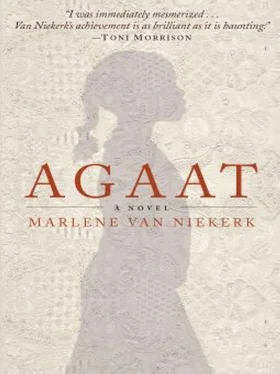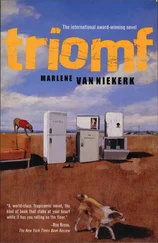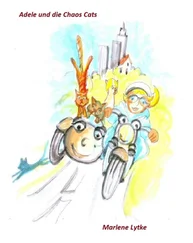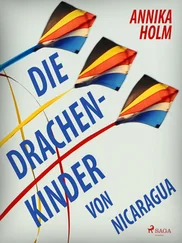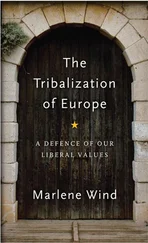What could you shore up against that? Against the number of cows covered, the report on the first signs of nasal bot among the sheep? What she left out, were the dreadful daily quarrels between you and Jak and the swearing and the tears. To judge by Agaat’s letter the Grootmoedersdrift homestead was a model of peace and harmony.
Why did it infuriate you so immoderately that day next to the road? The prettification to which every paragraph bore witness, was in the best possible taste. You couldn’t have done it better yourself.
You read the whole thing. At the end, for a whole paragraph, she asked questions, intimate questions from the nêne of old. What do they give you to eat there in the mess? Do you see meat in those army stews? Do you sleep warm enough? Is your pillow filled properly? Are your superiors well disposed towards you? Are you healthy? Are you safe? Do your subordinates listen to your commands? Are you getting used yet to taking off, to the blow to the heart and the horse rearing up? (rein it in) Do your ears still close up when you come down? (chew a dried peach) When are you coming home again?
The disquiet that was also in your and Jak’s hearts, she formulated as: I pray for your blessed and kept return from the distant skies.
It was herself she was comforting with the quince-mousse dessert she was thinking up for him, the roast of hare in pomegranate sauce that she would place steaming before him.
You wanted to read the letter again, you put it back into your handbag. Agaat’s blue Croxley envelopes you usually licked, and pressed closed again as best you might, asked at the post office for a bit of sticky tape. Your transgressions you trusted would be covered by the far more visible and sanctioned incursions of the military security that according to Jakkie opened and stamped everything. But this letter you didn’t want to let go, there was a tenderness and an obsession to these formulations after which you hungered.
Jak had his own formulae in which to clothe this new situation for himself.
How is Pa’s soldier? he’d ask on the phone when Jakkie phoned.
You listened in on the second phone. Jakkie could give him answers pertaining to his number of logged flying hours, the sensation of breaking through the sound barrier, the training with the ejector seat in the simulator.
He was a body of potentials for his father, a model of endurance, of physical discipline, of drilled limbs and sharpened reflexes.
And you? What could you ask this child about whom you felt your knowledge was of the second order, of the third, after Jak with whom he had had his baptism of fire in the mountains, after Agaat on whose bosom he’d grown up?
She was the one to whom he handed his laundry bag every time he came home, and who packed his suitcase for him when he left again.
What could you respond, what add, to the smile, the poker faces exchanged with the handing over of the bag, the handing back of the suitcase?
You knew of the little surprises with which from childhood they’d spoilt each other. Quartz pebbles, mouse skulls, tanned moleskins, under a pillow, in a shoe. Later, Agaat’s jerseys and pullovers for Jakkie, a bow tie and a new shirt that she went to buy him in town with her own money, cellophane packets of fudge and taffy and fennel cookies that she hid amongst his clothes.
And Jakkie’s gifts to her, boxes of fine chocolate, sachets of saffron and cardamom from the spice stores of the Boland, story books, Croxley writing-pads and envelopes, magazines, headscarves and fragrances.
Not that she ever used the perfume. The little bottles stood untouched, like an exhibition of trophies, on the shelf above her washing-table. The scarves she used as wall decorations for her room. She scrutinised them for new designs that she could embroider.
Your attention and interest you felt passed Jakkie by, unheeded. Was it for your sake that he joined the Air Force choir? He sent you their record. Side one, The Lord is My Shepherd . Side two, Oh for a gun in my strong right hand . He was more attuned to his father’s ideals, to Agaat’s favour than to your concern. From the sidelines you watched things develop.
As a member of the Permanent Force’s elite corps of highly trained personnel Jakkie made rapid progress, just as Jak had predicted. He could study and earn a salary at the same time. He obtained a degree in aeronautical engineering. In case he won’t be able to fly all his life, he said, then he can design machinery for the Air Force.
Like what? Jak wanted to know.
The plans are there, but it’s classified information, Jakkie sent word. All that you got to know in that time, was that the Bureau of Mechanical Engineering at Stellenbosch was a kind of front for Armscor. You had some misgivings about this, but Jak said why could the Afrikaner’s cultural headquarters not also be his arms factory, it goes without saying, that’s how all honourable nations consolidate themselves.
You both knew that Jakkie wasn’t really interested in politics, all he wanted to do was fly the Air Force’s modern fighter planes. That was Jak’s great dream. At supper table he read you and Agaat extracts and showed you pictures of aeroplanes from Paratus and Jane’s Defence Weekly , to which he subscribed.
You knew that Jakkie was flying Impalas and Mirages. You and Jak knew that it wasn’t child’s play in South West. You knew that it was the supreme game of heroes, that those who took part in the war against the Cubans in Angola were awarded the highest honours. You had the right to be proud, he was the child of all three of you.
But what was it that you felt there at the supper table when Agaat received a thick letter from him, thicker than that to his parents, and you and Jak asked her to read it aloud? It wasn’t pride, it was loss that united the two of you there under the lamplight. As united as you could ever be. Because you and Jak were suspicious of Agaat whose eyes sometimes glided rapidly over the lines, over the bits she left out. Jakkie’s letters to her you didn’t dare open or intercept.
You were dependent upon each other’s fictions about Jakkie. You were his family, but he belonged to the war, to secret operations. Later when it leaked out in the press, Jak bloodthirstily speculated about Jakkie’s part in the preservation of country and nation.
Oh please just shut up! you shouted at Jak when it became too much for you.
You locked yourself in your room, went to lie down on your bed, crying. You couldn’t figure out with whom you were most angry. With Jakkie who wasn’t open about his activities, with the Defence Force that employed him for its own purposes, or with the government that maintained a dour silence.
But it was the scene there in the dining room that really irked you, the scene with Jak and Agaat, she standing opposite him on the other side of the table, her hands on the back of the chair, half of her face in shadow. Jak telling tales of bombed-out enemy positions, of smoking Migs exploding in fireballs. Was she flattered to serve as audience to the fantasies of the baas?
It sickened you. You tried to keep yourself going with hard work, but then there was always the apprehension, the suspicion in those years, the late seventies, early eighties.
You went to see the doctor. He prescribed a stronger tranquilliser, better sleeping draughts. That helped, but it made you feel as if you were only half alive. Agaat checked your consumption closely. She was particularly interested in your faints, in the weakness that sometimes overcame you in the middle of wool-classing or during the stamping of the wool bales. Exaggeratedly solicitous she’d be then. Irony, no, sarcasm was in the crook of the elbow of the strong arm she offered to accompany you to your room.
Читать дальше
